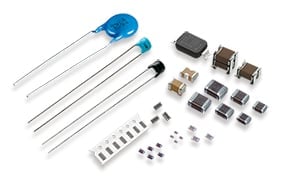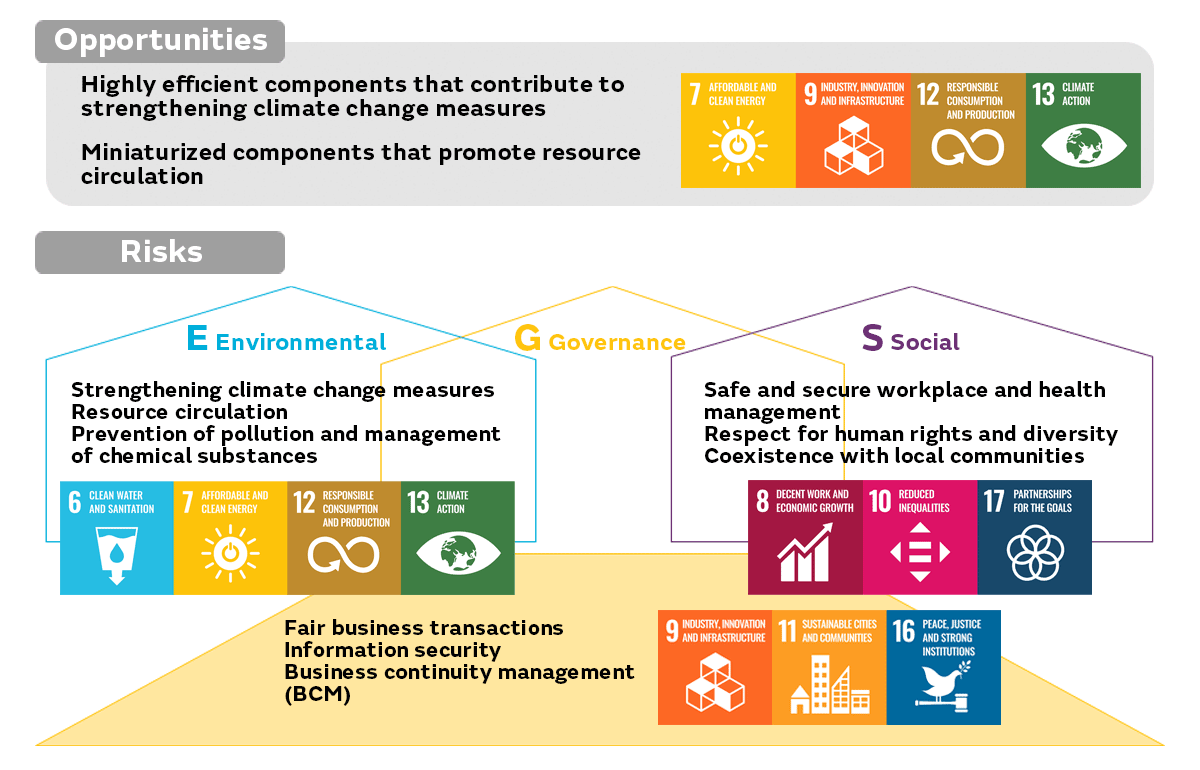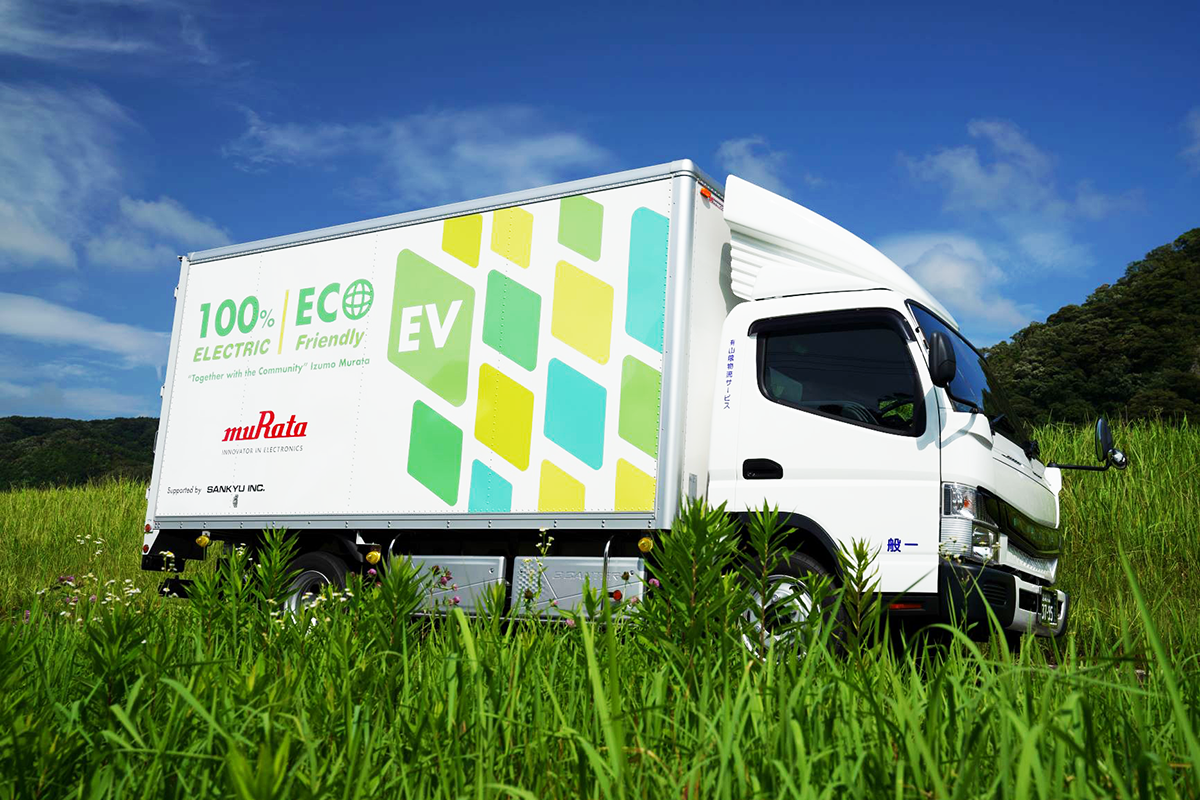Ceramic Capacitor


SDGs×Murata
INDEX
1. Acceleration of initiatives through the 11 key issues and SDGs
2. Accumulating case studies with MLCCs and propagating SDGs throughout Murata

Murata's corporate philosophy includes the idea of "enhancing technologies and skills, applying a scientific approach," while the corporate slogan of "Innovator in Electronics" captures the idea of "independently working in a better direction with respect to the environment and society." Solving social issues through business is Murata's basic policy. As a means of putting that policy into practice, we have undertaken various initiatives within MLCCs thus far.
Sanada: "Of course, there are overseas regulations such as the RoHS Directive restricting the use of specified toxic substances in electronic and electrical equipment and the REACH rules concerning chemical substance management, and we have established strict standards by combining these with Murata's own database. While coordinating with our supply chain, internal management and screening systems have been robustly constructed to check for hazardous substances, etc."
Miyoshi: "We are engaged in material development based on such standards and the philosophy of "applying a scientific approach," but we have been putting an initiative to reduce waste into practice since about 20 years ago. Previously, we would start to examine ways to process waste and waste fluids in the final phase right before mass production, but we currently deal with those issues in the initial phase of development. The exchange of opinions regarding our environmental response also became lively, which I believe is due to the influence of the 11 key issues and the SDGs."
Aoki: "Customer demands regarding the environmental response have also increased. Naturally, superior quality and cost are important, but product manufacturing that is conscious of environmental aspects will become the criteria for company selection going forward, so I would like to carefully follow this issue."

In addition to the miniaturization and the packaging materials reduction that we have pursued for some time already, various initiatives are advancing such as the promotion of energy conservation and smart factories based on RE100, environmental load reduction at Chinese factories, the introduction of mega solar projects, and on-site distribution using compact electric trucks.
Sanada: "Producing MLCCs involves a complex process and significant energy use, so we have been monitoring power consumption for each production process and facility for more than 20 years. However, improvements cannot be discovered through monitoring alone. Increasing data analysis accuracy after monitoring is very important. Currently, the data analysis has basically finished, so we are at the stage of setting improvement themes based on it."
Miyoshi: "In addition to initiatives to reduce waste, we are also working in recent years to create new forms of value that change waste into valuable resources. While this is an initiative with a high degree of difficulty, I would like to approach it by first starting with the large production-scale MLCCs and then expanding to 'All of Murata.'"
Sanada: "MLCCs have a large production scale, and their value in the market is also growing. Therefore, we would like to advance various initiatives first in MLCCs, accumulate case studies and knowledge, and then create SDG role models for 'All of Murata.'"
Naturally, we are implementing various environmental measures, but we are also promoting the goal of "decent work [fulfilling and humane work]" aimed at by the SDGs.
Miyoshi: "We are carrying out an initiative in which employees mutually share their opinions about job satisfaction and incorporate those ideas into our vision and mission. "Diversity and inclusion" activities that respect individuals regardless of gender, age, and other attributes have also permeated the company. Moreover, we are also promoting the creation of a safe and secure workplace and health management as important initiatives that will lead to ease of work."
Sanada: "Long ago, the thinking was that corporate environmental measures were just expensive and would not generate profits. However, that is not necessarily the case. For example, energy conservation is one case that leads to improved production efficiency and cost reductions. Streamlining, quality improvement, and other activities are closely related to with environmental measures. I believe that by propagating such thinking within the company, it will help to change people's consciousness and increase their motivation."
Aoki: "As someone who meets with customers, I feel a sense of job satisfaction when they use many new products and from being able to provide support to solve customer issues. Moreover, I am also able to see how customers are using our products, and my role is also to provide feedback to frontline employees regarding customer opinions and impressions to increase their motivation and connect that to the creation of new forms of value.
Through such activities, I hope to contribute to social and cultural development even more than before. The times are changing, and I think that the interpretation of the expression 'advancement of society' in the company philosophy has changed from 'material' to 'spiritual' abundance, so I am thinking seriously about job satisfaction and ease of work."
MLCC initiatives can also be said to be the starting point of Murata's SDGs. The foundation of these wide-ranging initiatives has been deeply penetrated by the ideas of contributing to social and cultural development, being an 'Innovator in Electronics,' and other ways of thinking. The MLCC SDGs introduced in installments 1 and 2 of this series suggest how important it is to have the employees facing the same direction and acting with a common goal when promoting SDGs at the operational level.
The information presented in this article was current as of the date of publication. Please note that it may differ from the latest information.